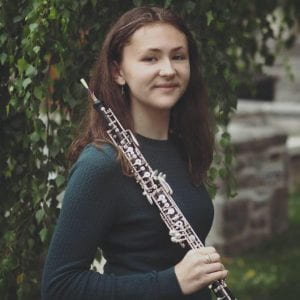Mackenzie

Mackenzie plans to use the grant to study English as a Second Language (ESL) programs in Perú, Portugal, Germany, Czech Republic, and Japan. In particular, her project focuses on the language background of each program’s city, the relative centralization of the curriculum, and what degree of accent training each involves. This project supports Mackenzie’s broader goal of being able to make US policy recommendations for improving the way ESL is taught in the United States.
When we asked about her initial interest in researching accents and ESL programs, she told OUR, “I come from a diverse background—my father is from South Korea, my mother’s family is from Norway, and my hometown is an hour from the US-Mexico border. I have always been interested in language and the questions behind why language is so important, why we are always searching for the ‘right’ words.” Mackenzie found her calling to teach ESL after becoming fluent in German, wanting to share her success strategies with others. “The secret about teaching is that you learn as much as your students do, and what I learned from my ESL students was that there are gaps in the models that we use across the world to teach English, and those gaps position some students over others regarding their language abilities.”
Mackenzie certainly embraces Northwestern’s spirit of interdisciplinary study. Some of her latest research projects include: church architecture as a vehicle for political propaganda; sustainability in Hamburg’s fashion industry; and her senior thesis centers on “how linguistic tools can extract further meaning from architecture.” When asked about her research experience thus far, she told us that, “Interdisciplinarity goes hand-in-hand with advancement. For me, I have always been an interdisciplinarian with interests in topics like music, language, finance, and architecture; thus, when I came to Northwestern I knew that interdisciplinarity would play a key role in my education and research.”
If you are an undergraduate interested in research, Mackenzie advises, “All parts of the research process are community-based. It is also vital to meet with individuals who specialize in the grant writing process and individuals who have been awarded the grant in the past, as they have experience that new applicants lack in that area.”
Lastly, for those of you who find the research process intimidating, Mackenzie shares these encouraging words:
“To quote Aaron McManus: “How you lose matters.” Some people are the kind of people who win everything (or near everything) they touch. I have never been that kind of person. Over my many years training as a musician and as an academic, I have failed thousands of times. What I have learned is a process: grieve the losses fully and quickly, listen deeply to the advice given to you (whether you heed it or not), and grant yourself grace enough for another chance.”
